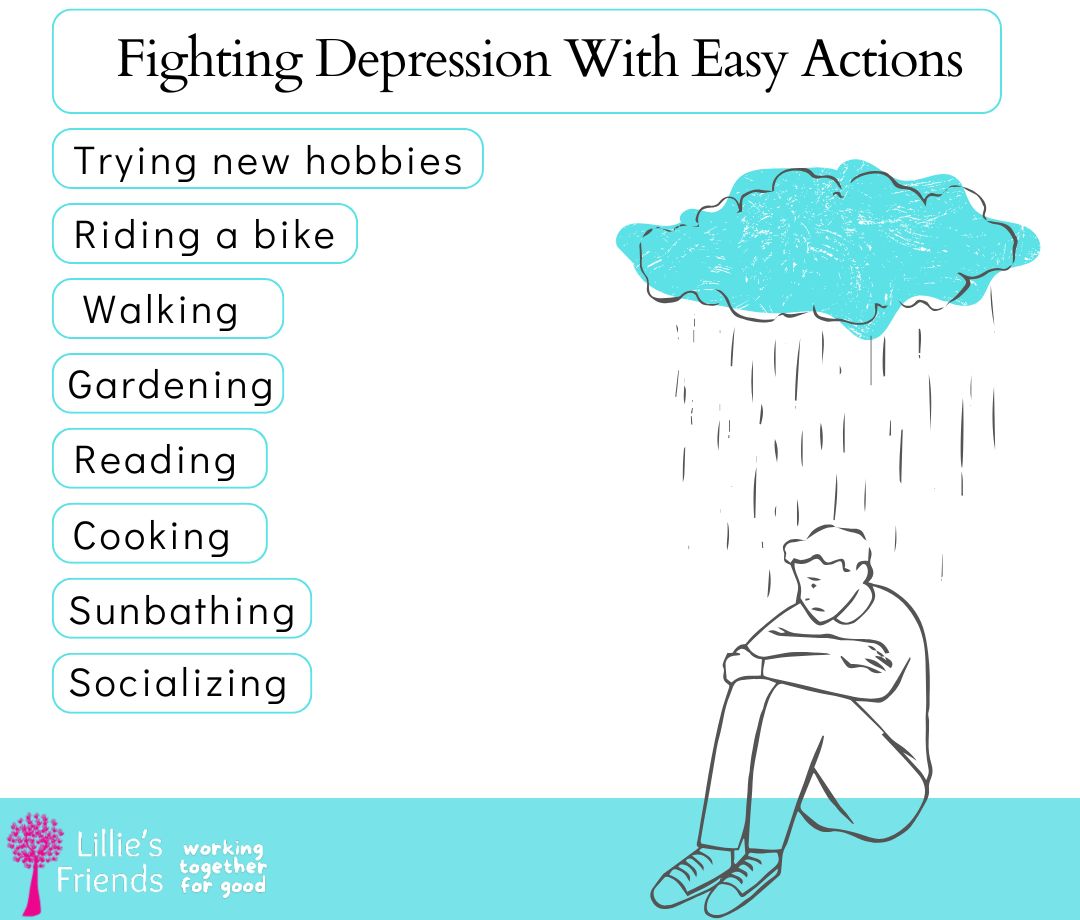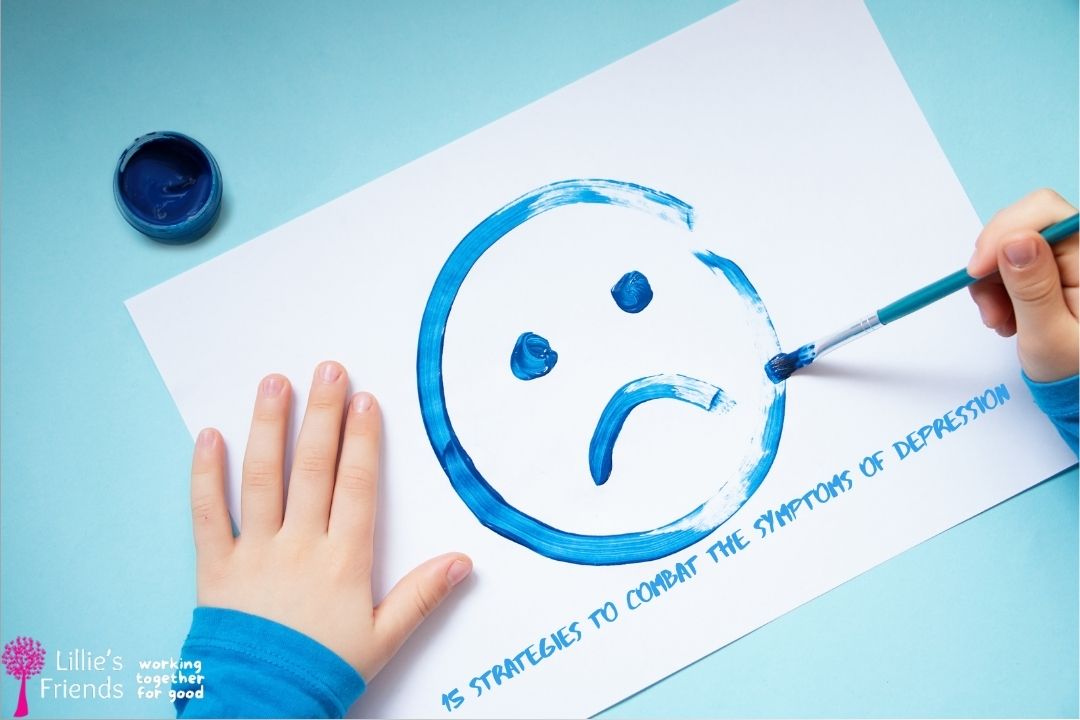People who are depressed frequently have difficulties in their daily lives. They may experience issues at work, in their social lives, and in their relationships with their families. Additionally, while medical assistance such as medicine or therapy can help reduce the symptoms of depression, self-help approaches can also increase the effectiveness of treatment.
However, choosing a fun pastime might be challenging if you suffer from anhedonia or apathy. We’ve compiled a list of 15 activities that might help alleviate symptoms and lessen negative emotions when you’re feeling down.
Make Sleep a Priority
Getting enough sleep↗ is crucial for your body to operate normally. Sleep deprivation impacts your general health. Thus, if you are battling depression, make sure you maintain proper sleep hygiene to avoid exacerbating your symptoms. Consistent bedtimes, a comfortable resting environment, and refraining from using electronics just before bed are all components of excellent sleep hygiene.
Have a Little Walk
Even something as basic as going for a stroll around the block might help alleviate typical symptoms of sadness. Endorphins are natural substances released during physical exertion that enhance emotions of wellbeing. Easy, low-density exercises that might enhance mood and quality of life are short-distance walks↗. It is also helpful to walk with your spouse in parks or on your property while you engage with nature outside, particularly if the diagnosis is associated with seasonal affective disorders↗.
Take a Bike Ride
In addition to walking, you may combat depressive symptoms by riding a bike. You may experience the endorphins that are released from your body while riding and refocusing. If cycling isn’t your thing, you may try rollerblading or skateboarding.
Make a dish you enjoy.
Another way to combat sadness is to spend some time in the kitchen. While you wait for a delicious supper, cooking↗ your favorite dish keeps you busy. You have the option of trying something new or sticking to your favorite dishes. You have more control over the ingredients when you cook your own food, which guarantees that you are getting the nutrients you need for good health.
Take Part in Gardening
One of the numerous strategies to treat depression is to garden↗, whether that means caring for your backyard or bringing indoor plants into your house or place of business. It’s well known that plants help people relax. People’s mental health is positively impacted by gardening because it fosters a connection with nature. There is a clear correlation between indoor plants and a better work environment, less stress, and a decrease in anxiety and sadness.
Go through a book.
Losing yourself in your favorite literature can also help reduce stress and despair. Reading about ancient history, science, and other fascinating subjects in your spare time, whether online or at the library, helps you think more clearly, reflect on yourself, and divert your mind from negative ideas. Memory and focus are two cognitive deficits that reading might assist with. Furthermore, self-help books↗ can improve readers’ capacity to handle and cope with challenging circumstances while also assisting them in adopting more constructive thought and behavior patterns.
Play some music.
One of the most commonly suggested suggestions for depression is to listen to your favorite music↗. Music impacts your emotions and thinking. When you’re feeling low, listening to your favorite music lifts your spirits.
Regretfully, the majority of people who are depressed tend to listen to music that exacerbates their melancholy and rumination. Even if it could be tempting to listen to such music, choose lively tunes that uplift your mood and help you feel better.

Practice yoga
In addition to its well-known spiritual advantages, yoga ↗ offers substantial bodily advantages. Yoga and mindfulness exercises can help reduce depressive symptoms and enhance mental and physical well-being. It highlights the mind-body link, which can help people relax and become more conscious of their thoughts and feelings.
Take a Movie
It is incredibly underappreciated to go on single cinema dates. Setting up a movie date allows you to temporarily escape the problems in the real world that lead to depression and other mental health conditions. The ideal time to do this is during the day, when movie theaters aren’t as crowded.
Take a Sunbath
There is enough proof to conclude that depression can result from a vitamin D↗ deficiency. Vitamin D can reduce depression symptoms by influencing hormones that regulate mood. If you are unable to obtain adequate vitamin D from your food or sun↗ exposure, you should think about taking supplements. Other nutritional deficits that might exacerbate symptoms of depression should also be noted.
Pay Attention to Your Spirituality
Some persons with depression find that religion or spiritual practices↗ are a useful source of comfort and support. While some people choose various hobbies, others decide to attend church or mosque or join a certain faith. These may include writing down your blessings, engaging in meditation, practicing forgiveness and acceptance, etc. All of that can enhance well-being and mood.
Modify Your Thoughts
Your mood is directly impacted by your thoughts. While negative ideas might impair your well-being, positive thoughts can lift your spirits. By recognizing, questioning, and reorganizing negative ideas as well as by using self-affirmations, you may alter them. See a therapist if you are unable to overcome your negative thoughts. To aid people with depression, therapists employ a variety of therapeutic approaches, including cognitive behavioral therapy (CBT↗).
Create a Daily Schedule
Those who have depressive episodes may find it challenging to maintain their routines. Even if you experience stress and worry, routines help you feel normal, which might benefit your mental health. You have to develop a schedule that outlines the essentials and self-care tasks.
Take Up Some New Interests
Depression reduces drive and interest in trying new activities. As a result, you may make a list of many activities↗ that you want to investigate and work on individually. Over time, you will discover a few hobbies that pique your interest or inspire you if you start small.
Boost Your Social Life
If you are unhappy and lonely, you shouldn’t fight alone. Get in touch with your loved ones and make arrangements. Additionally, you can participate in volunteer initiatives, sports, and support groups.
The Bottom Line
Adult depression is prevalent and is generally typified by depressive, hopeless, and disinterested sentiments. Depression impairs one’s ability to function in daily life, at work, and in education if treatment is not received. Those who are affected can prevent depressed symptoms by following the simple advice above. See a mental health professional if the symptoms persist for an extended period of time.











